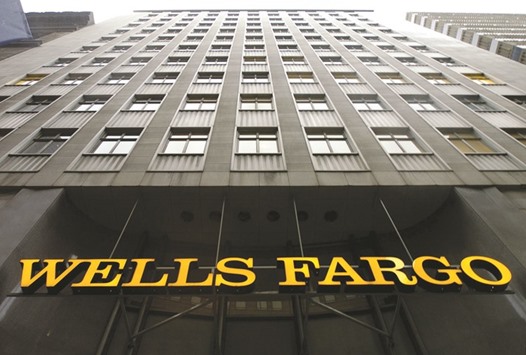A little bit of fear can be good for Wall Street trading desks.
Investors are increasingly looking to bet against individual companies and countries in derivatives markets, after risk premiums on debt broadly jump. Money managers are also using the instruments to hedge risk. Transactions tied to individual entities surged during the first two months of the year, with volume doubling in the four weeks ended February 5, according to a JPMorgan Chase & Co analysis of trade repository data.
“As the markets have sold off in certain sectors, there’s been increased interest to hedge those specific sectors or names,” said Anindya Basu, a structured-credit strategist at Citigroup.
Dealers are taking note. Wells Fargo & Co, the third largest US bank by assets, plans to trade derivatives known as single-name credit default swaps with clients as soon as next quarter, people with knowledge of the matter said. Last year, Stifel Nicolaus & Co began trading swaps tied to indexes and individual companies, two people said. Ken Griffin’s Citadel is also expanding into credit-default-swap trading for other investors, starting with indexes.
The firms are coming back to a part of the market that at least some banks had abandoned. The amount of debt protected against default by single-name credit derivatives has dropped to $6.8tn for the week ending February 26, from more than $33tn in 2008, according to data from the Depository Trust & Clearing Corp Many investors lost interest in using credit derivatives to protect against markets getting weaker, as a recovering economy brought fewer defaults and a surge in corporate bond prices. Kinks in the market’s plumbing also cut into demand. Regulators have not pushed for single-name credit default swaps to trade through clearinghouses, a move that would cut transaction costs for players and reduce risk to the financial system. Deutsche Bank said in 2014 it was stopping trading default swaps on most companies, citing rising expenses.
Late last year, more than two dozen major investment firms including BlackRock and Pacific Investment Management Co. Wells Fargo plans to focus on trading cleared single-name credit derivatives, and Stifel Nicolaus focuses on that area now. Jessica Ong, a spokeswoman for Wells Fargo, declined to comment.
Investors may have reason to be more concerned about credit quality now. Companies owe more interest than they ever have, while their ability to service their debt is declining. Market measures of credit risk have been showing increased investor fear, although that fear has abated some in recent weeks. The average risk premium on a US investment-grade corporate bond rose by 0.79 percentage point to 2.21 percentage points from mid-June to mid-February, but has since fallen to 1.93 percentage points, according to Bank of America Merrill Lynch indexes. The five-year average is 1.61 percentage points.
As more banks trade single-name credit-default swaps, money managers may find it easier to make wagers in the derivatives markets instead of the corporate bond markets, said Joel McKoan, a money manager at First Eagle Investment Management.
“With well-known liquidity issues in the cash bond market, we’ve always thought that it made sense to have CDS as a tool to hedge risk or take risk,” McKoan said.

Wells Fargo & Co’s headquarters in San Francisco. The third largest US bank by assets is planning to trade derivatives known as single-name credit default swaps with clients as soon as next quarter, according to reports.
